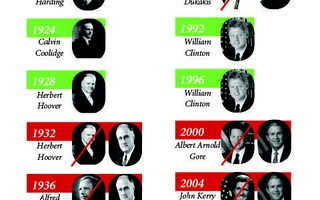The Roosevelt Institution launched its first chapter at Harvard on Saturday afternoon, drawing a crowd of over a hundred progressive students in the basement of the Student Organization Center at Hilles.
Billed as the country’s first student think tank, the Roosevelt Institution was founded jointly at Stanford and Yale in 2004, as a memorial to the progressive policies of President Franklin D. Roosevelt, Class of 1904. It now consists of almost 7,000 undergraduate members and over 70 college chapters nationwide
At the Saturday event, the keynote speaker Joseph R. Driscoll, a Mass. State Representative, told the group that if they joined the organization they would be able to participate in local, state, and even national policy debates.
“This is not just a think tank that will be a silo,” he said. “There are generations that get unique opportunities, and yours is one of them.”
Matthew Young ’12, a founding member of the Harvard chapter’s steering committee, said in his speech that members will work with their counterparts at other colleges to lobby for change on issues ranging from local politics to healthcare.
“If you want to go fast, go alone,” said Young, who wore a T-shirt emblazoned with Roosevelt’s face. “But if you want to go far, go together.”
Young added that students can work with professors on policy research, get published in national journals, and participate in “fireside chats,” where students and professors will talk politics over hot chocolate.
“Students underestimate their abilities to advance legislative goals, especially about the issues they care the most about,” Young said. “There’s actually a lot that students can do.”
Despite the think tank’s liberal bent, conservatives on campus did not protest the inception of the new chapter.
“What’s in a name, right?” said Brian J. Bolduc ’10, editor emeritus of the Harvard Salient and an active Crimson editorial editor, referencing the organization’s association with the famed architect of the New Deal. “As long as they’re willing to have different points of view expressed, the name isn’t that big of a problem.”
“Everyone can agree that FDR led this country through a difficult time,” said Colin J. Motley ’10, president of the Harvard Republican Club. “But from what I’ve observed, there’s a tendency in the work of the Roosevelt Institution to favor government intervention in the economy and other things that might make it difficult for conservative students to become involved in the organization.”
“We always welcome competition of ideas on campus,” said Rachel L. Wagley ’11, co-president of Harvard’s pro-abstinence group, True Love Revolution. “The more the merrier.”
—Staff writer James K. McAuley can be reached at mcauley@fas.harvard.edu.
Read more in News
Prof Returns from WashingtonRecommended Articles
-
John Blum, Former Harvard Corporation Member, Dies at 90Former Harvard Corporation Fellow and famed presidential biographer John M. Blum ’43 died Oct. 17 from complications with pneumonia at his home in Branford, Conn.
-
So You Want to Be PresidentIf you want to be a leader in politics, you need to be motivated by more than a sound bite.
-
 If Harvard Picked The President
If Harvard Picked The President -
Fireside TweetsPresident Franklin D. Roosevelt’s famous fireside chats did not take place next to the cozy hearth their name suggests—but they might as well have. Roosevelt spoke over the radio, after all, so no one could see him.
-
 Chris Matthews Criticizes Republicans Playing Hardball in Fiscal Fight
Chris Matthews Criticizes Republicans Playing Hardball in Fiscal Fight -
Who Needs a Student Center When We Have the Porcellian?A few weeks ago, the Harvard administration announced some unsettling news. After a lengthy search, a donor for the long-proposed student center had finally been secured. Though construction won’t start on the building for quite some time, the center will likely feature large spaces that can be used for parties, events, and lectures, as well as smaller areas for less formal gatherings.













